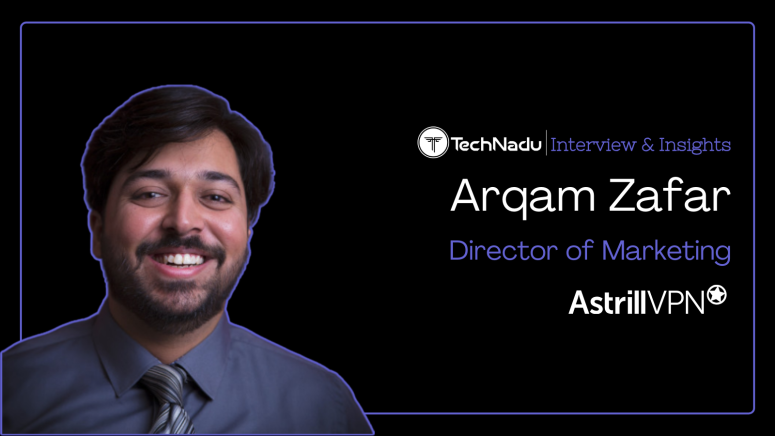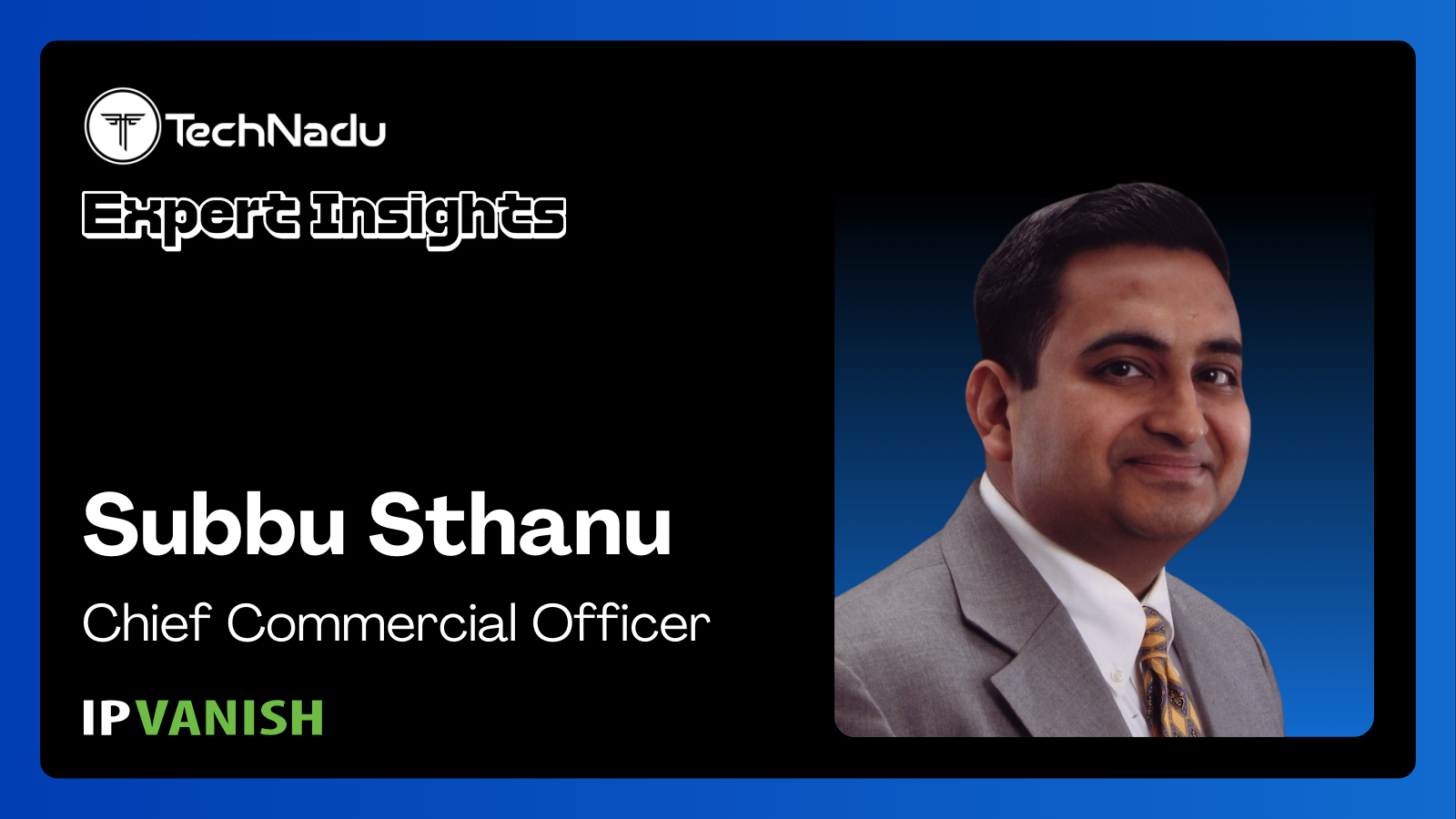
AstrillVPN on Post-Quantum Security, AI, and Building the Next Era of Online Privacy
For over a decade, AstrillVPN has built its reputation as one of the most resilient VPN services in the world, especially in regions with the toughest internet restrictions. From pioneering features like Smart Mode and StealthVPN to maintaining a strict no-logs policy from its base in Liechtenstein, Astrill continues to evolve at the cutting edge of VPN technology.
In this exclusive interview, we spoke with Arqam Zafar, Director of Marketing at AstrillVPN, about his personal journey in the industry, Astrill’s approach to innovation, and how the company is preparing for the challenges of quantum computing, AI-driven censorship, and global regulatory crackdowns.
Read on for insights into how Astrill balances high-end infrastructure with software optimization, why privacy-first design is non-negotiable, and why VPNs may soon become essential civil liberties infrastructure.
1. Before we get into the technical side, could you share your personal journey and what inspired you to join Astrill as Director of Marketing, especially in such a security-focused industry?
I first joined AstrillVPN in 2009 and have seen the industry grow from niche beginnings into a critical part of modern life. I came back as Director of Marketing because privacy has never been more important, and I want to help people see how vital it is in today’s data-centric world.
2. Your infrastructure relies heavily on dedicated bare-metal servers with AES encryption offloading. Are there plans to integrate hardware acceleration for upcoming post-quantum cryptography algorithms as they mature?
Yes, we are actively investigating this and, as always, we will utilize hardware acceleration wherever possible.
3. Astrill’s WireGuard implementation is noted for its performance and security. How do you handle key management and rekeying in multi-hop configurations, and are you exploring any AI-driven optimization for routing?
We utilize a proprietary, highly efficient, and ingenious technology for key management and rekeying in multihop, which gives us a competitive advantage we prefer not to disclose. We do not use AI-optimized routing.
4. Given the increasing use of machine learning in traffic analysis, does Astrill employ any AI-based anomaly detection to proactively identify and mitigate sophisticated network attacks or traffic correlation attempts?
We have internal checks and systems to protect our network. However, we do not employ any analysis of our traffic.
5. Can you share insights into your protocol development pipeline? How do you balance implementing cutting-edge cryptographic protocols with maintaining broad compatibility and performance across diverse platforms?
Our priorities are security, reliability, and performance, in that order. We only implement new cryptographic primitives after they have been thoroughly reviewed and established by experts. We believe well-established, battle-tested cryptography is more valuable than simply using "the latest tech."
While we monitor new developments, we will not deploy them until we are confident they are free of backdoors or vulnerabilities.
6. Your Smart Mode feature dynamically tunnels only international traffic via VPN, optimizing speed and latency. Are there plans to leverage AI to make these routing decisions more adaptive in real-time based on user behavior or network conditions?
Our Smart Mode is specifically developed for areas with stringent internet restrictions. It utilizes smart routing rules, and an AI-based system is a potential future enhancement.
7. Astrill has pioneered many features like split tunneling, stateless TCP, and multi-hop VPN. What upcoming innovations or unique VPN features can we expect from Astrill in the next 2–3 years?
We are developing several new features and enhancements, including internal protocol upgrades and a more robust ad/tracker blocking solution.
8. As quantum computing advances threaten traditional encryption, is Astrill currently researching or testing any post-quantum VPN protocols or hybrid quantum-resistant cryptographic schemes?
We are looking into this and expect a transition to such protocols within the next three years. For now, experts expect the cryptography we use to be sufficient for the next decade. And since we use perfect forward secrecy, even if quantum computing breaches the algorithms in use in the future, they will not allow any attacker to decipher backward the data that was transferred using AstrillVPN.
9. How do you envision AI impacting the future of VPN technology, both from a security enhancement and potential threat perspective, and what steps is Astrill taking to stay ahead in this evolving landscape?
AI could facilitate the implementation of protocols that adapt to emerging blockages caused by new regional restrictions. However, we believe AI requires further maturation before it can be effectively integrated into privacy-focused solutions.
10. Are there any ongoing R&D projects within Astrill leveraging AI to enhance privacy features, such as automated leak detection or intelligent kill switch behavior?
AI is not ideal for features like leak detection or kill switches. These require absolute and predictable control, and are relatively simple to implement and enforce. Using AI here would negatively impact performance and reliability. While AI has a place in our infrastructure, this is not it.
11. How does Astrill balance the investment in high-end hardware infrastructure versus software innovation, and where do you see the biggest growth opportunities for the company?
Our primary focus is on software optimization, aiming to maximize performance from existing hardware before upgrading. We believe that extracting every bit of performance possible through software yields significant returns, whereas immediately switching to the latest hardware often provides diminishing benefits.
12. Astrill has a reputation for seamless one-click apps with native support across many platforms. How do you approach usability testing to ensure that non-technical users can easily leverage advanced features like Smart Mode and VPN sharing?
We launch new features straight to our users and refine them through their feedback—so every update reflects what our customers truly want.
13. Many VPN users are concerned about privacy but find technical jargon overwhelming. How does Astrill simplify complex security concepts for everyday users to build trust and encourage safe practices?
AstrillVPN makes privacy simple by using plain language, secure defaults, and clear visual cues—so users stay protected without needing to understand technical jargon. This builds trust and encourages safe everyday VPN use.
14. In the face of increasing global internet censorship and surveillance, how is Astrill adapting its technology and strategy to continue providing reliable service to users in restrictive regions, such as Russia and China?
We are recognized as the premier VPN solution in the most challenging regions. This reputation stems from our proactive observation of both technical aspects and the geopolitical landscape of each area. We are continuously adapting to overcome any obstacles we encounter.
15. Given your market leadership and focus on premium quality, are there any plans for strategic partnerships or integrations with emerging technologies like decentralized networks or blockchain for enhanced privacy?
Yes, we are open to strategic partnerships that align with our privacy-first mission.
16. With privacy regulations evolving worldwide, how is Astrill preparing to ensure compliance while maintaining strong privacy guarantees and user anonymity? For instance, let’s take the example of the EU’s ProtectEU strategy. What are your opinions on that, and how would you defend your privacy claims while maintaining compliance with government regulations?
Being based in Liechtenstein gives AstrillVPN a unique advantage: we can comply with evolving frameworks like ProtectEU while still guaranteeing the privacy protections that users expect. Our philosophy is simple—collect the bare minimum, design features that enforce privacy by default, and stay ahead of regulations so our users never have to choose between safety and compliance.
17. With countries like Russia enacting stricter laws on VPNs and signaling a possible WhatsApp ban, how does Astrill plan to maintain accessibility and resilience in regions where VPN use is becoming criminalized or technically restricted?
AstrillVPN has built its reputation by working reliably in the world’s most restrictive regions. Our resilience comes from constant innovation developing proprietary technologies, maintaining a diverse server network, and rapidly adapting to new censorship tactics. No matter how strict the environment, users can count on Astrill to remain accessible and dependable.
18. We've seen a massive surge in VPN interest in the UK following the implementation of porn site age verification laws. How is Astrill addressing the concerns of users who are new to VPNs and may be seeking tools to preserve privacy without deep technical knowledge? Did Astrill see a surge in its VPN plan sale in the UK post the implementation of age verification checks?
Yes, we saw a surge in UK users after the age-verification laws went live. For many, this was their first VPN and AstrillVPN is built exactly for them: one click, no jargon, just instant privacy and unrestricted access.
19. The UK's Online Safety Act brings up broader concerns about government overreach, mandatory age checks, and possible logging obligations. How does Astrill ensure that its infrastructure and no-logs policy remain compliant with such laws while still protecting user anonymity?
AstrillVPN is based in Liechtenstein, where we are not bound by invasive data-retention mandates. Our no-logs policy is built into our infrastructure, meaning we have nothing to hand over even if regulations abroad change. This ensures we stay compliant while continuing to protect user anonymity.
20. Do you anticipate that these types of regulatory crackdowns, such as Russia's VPN ban or the UK's age verification law, will accelerate innovation in stealth protocols, decentralized VPNs, or AI-driven obfuscation techniques? If so, how is Astrill positioning itself to lead in this new wave of anti-censorship technology?
Crackdowns like Russia’s VPN ban were the reason we built StealthVPN in the first place. With years of experience navigating the toughest censorship regimes, AstrillVPN is well-positioned to pioneer new obfuscation and anti-censorship technologies to keep our users connected and secure.
21. As more countries push for age verification, digital IDs, and centralized content filtering, do you foresee VPNs evolving from simply privacy tools into essential civil liberties infrastructure? What role does Astrill see itself playing in defending digital rights globally?
Yes, VPNs are evolving into a civil liberties infrastructure as governments push digital IDs and centralized filtering. Astrill’s role is to ensure people everywhere can access the open internet securely and privately by making advanced anti-censorship technology simple and accessible for all.
22. From a marketing perspective, how do you balance educating the public about these advanced privacy and security topics while also keeping Astrill’s messaging approachable and relatable for non-technical audiences?
AstrillVPN keeps messaging approachable by explaining advanced security in simple terms and real-life scenarios while offering deeper resources for tech-savvy users.
23. What is your opinion on how individuals can secure themselves in the current digital world, both technically and in terms of personal online habits?
Combine strong tools like a no-logs VPN and two-factor authentication with smart habits to limit oversharing, stay cautious with links, and keep devices updated.















